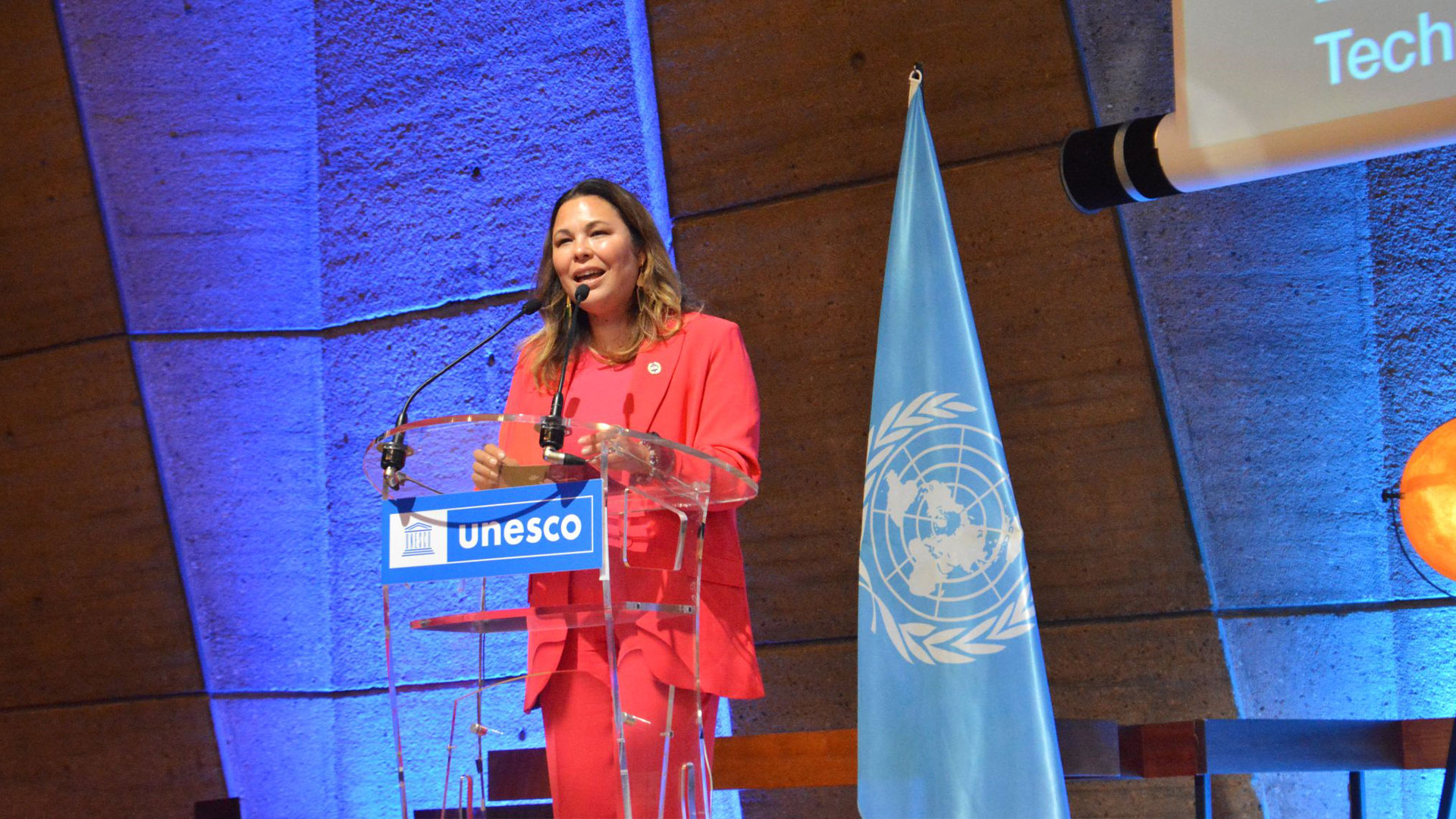
Paris, June 18, 2025 — The inaugural Tech Diplomacy Forum launched today at UNESCO Headquarters in Paris, establishing a groundbreaking platform for international cooperation in the digital age. This landmark initiative, founded and led by Ayumi Moore Aoki in partnership with UNESCO, convened world leaders, technology innovators, policymakers, and stakeholders from over 60 countries to address critical challenges at the intersection of technology, diplomacy, and global governance.
Defining a New Era of Digital Diplomacy
The Tech Diplomacy Forum represents a paradigm shift in how the international community approaches technological governance. Rather than responding reactively to digital disruptions, this initiative proactively builds diplomatic frameworks to harness technology for collective global benefit.
“We cannot allow technological development to become a zero-sum game between superpowers,” stated Ayumi Moore Aoki, Founder and President of the Tech Diplomacy Forum. “Our mission is to ensure every nation, regardless of economic size, can participate meaningfully in shaping our shared digital destiny.”
This vision guided a comprehensive agenda featuring dynamic discussions and strategic sessions throughout the day:
The State of Tech Diplomacy & Regional Perspectives: A comprehensive overview of the global tech diplomacy landscape, with insights from regional leaders exploring how different regions approach digital cooperation, highlighting successes, challenges, and opportunities for alignment.
Digital Sovereignty & Global Cooperation: Expert panels examined the delicate balance between national digital autonomy and international cooperation in an increasingly interconnected yet politically fragmented global landscape.
Oxford-Style Debate on Tech Company Representation: A strategic debate exploring whether technology companies should have formal representation in international diplomatic forums, addressing the evolving role of tech giants in global governance traditionally reserved for nation-states.
Tech Diplomacy for Gender Equality: Discussions on how diplomatic initiatives can address the growing gender digital divide globally, exploring policy frameworks and international cooperation mechanisms to ensure women’s equal participation in the digital economy.
Bridging the Digital Divide in the Global South: Strategic sessions focused on reducing global digital inequalities, with particular attention to Africa’s perspectives and engagement of key stakeholders including youth, civil society, and grassroots organizations.
Strategic Partnerships and Global Leadership
UNESCO Assistant Director-General Dr. Lidia Brito opened the forum, emphasizing the critical role of science diplomacy in today’s complex technological landscape. “When AI systems and digital platforms transcend borders, our governance mechanisms must evolve beyond traditional boundaries,” Dr. Brito observed, setting the foundation for substantive strategic dialogue.
The forum facilitated intensive deliberations across multiple strategic sessions, including an Oxford-style debate on formal tech company representation in diplomatic forums, regional perspectives on digital cooperation frameworks, and focused discussions on gender equality in tech diplomacy. Participants engaged in substantive dialogue on enhancing digital capabilities within diplomatic services and exploring innovative approaches to bridge the digital divide, particularly in the Global South.
Driving Global Impact
The launch of the Tech Diplomacy Forum at UNESCO Headquarters marks a historic milestone in international cooperation. This initiative positions global leaders at the forefront of technological governance, moving beyond reactive approaches to establish proactive diplomatic solutions.
The forum’s inaugural success demonstrates the international community’s commitment to responsible, inclusive, and innovative digital governance. By fostering meaningful dialogue between diverse stakeholders, the Tech Diplomacy Forum creates pathways for sustainable technological development that serves humanity’s collective interests.